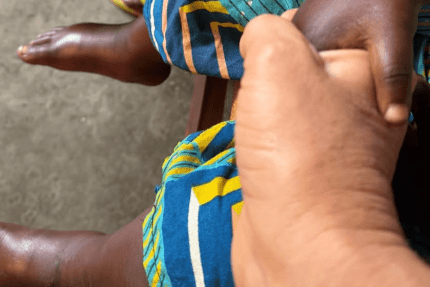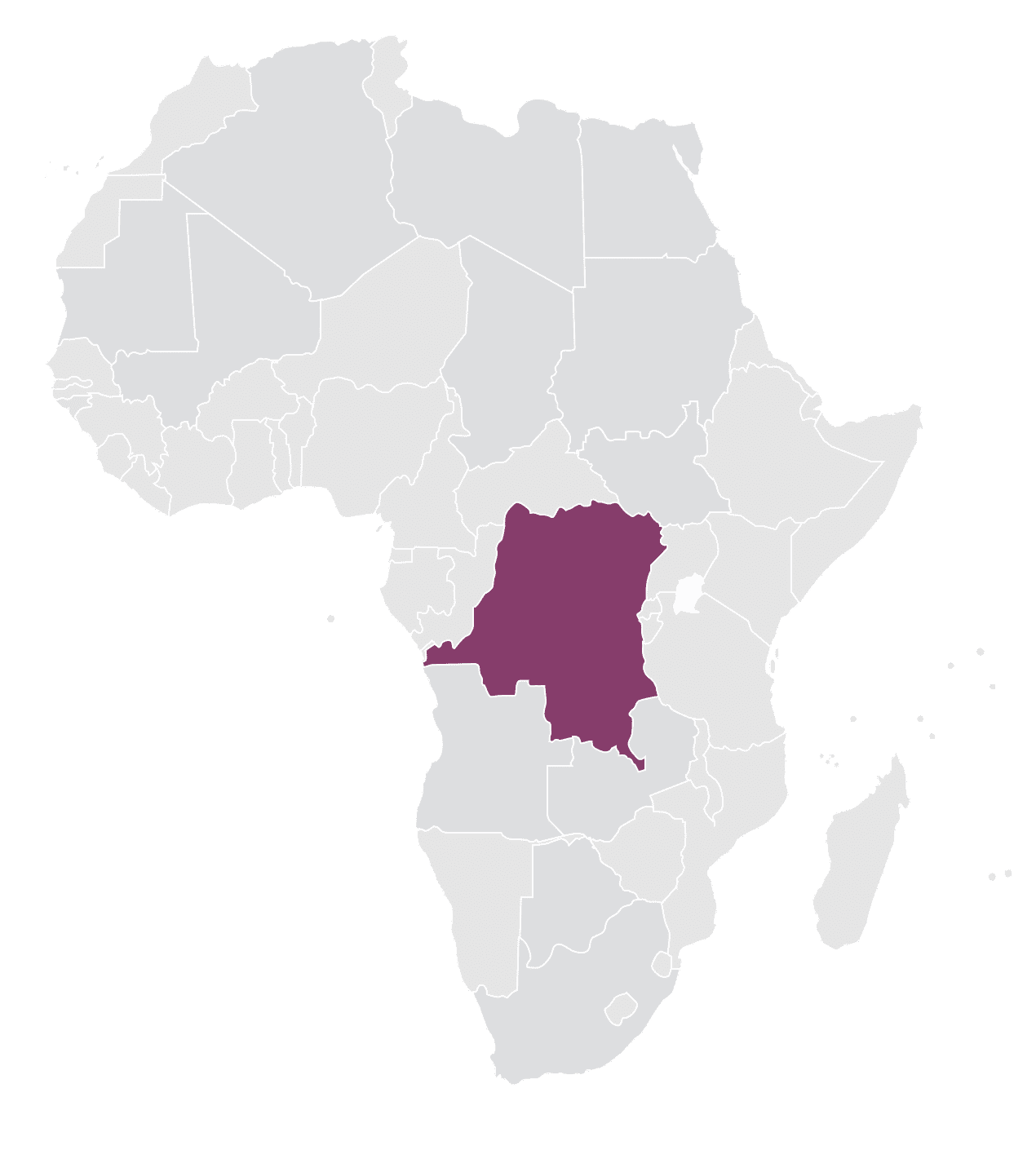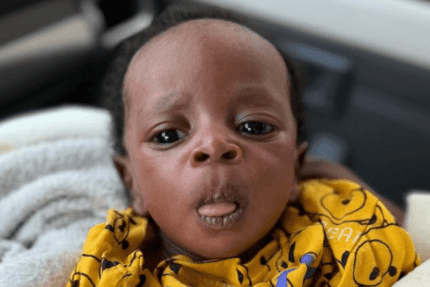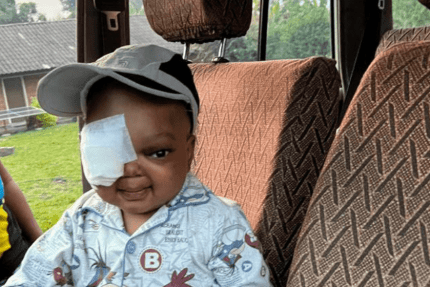“Such children are often discharged from hospitals because they cannot be helped. I am convinced that this would have been the case with Meshak,” says Agnieszka, “but he responds with movement, there is some contact. There is hope.”
Cerebral malaria is an extremely difficult opponent. Drowsiness passing to disorientation and then coma can last for several days, but it can also come suddenly, preceded by convulsions. It is difficult to watch a child suffer.
Meshak’s mother comes from a village 30 kilometres from our hospital. Their local hospital exists only in theory – it even lacks beds and needles. She travelled the distance on foot with her two children, even though she herself is in poor condition. By the time she reached us, she had nothing left – neither food nor any clothes to change into. She was only holding Meshak in a sling, and leading her daughter Alice by the hand.
We don’t know how Meshak’s situation will develop because the effects of cerebral malaria are unpredictable. He has fevers, so he is under constant observation by our hospital doctors. We perform regular follow-up blood tests. One thing is certain – he will need tremendous rehabilitation soon.
But there are things we can do together right now – the most important thing is the boy’s nutrition. We are feeding him through a probe with ground, high-protein food and fruit pulps. We are also nourishing his mum, whose house was burnt down as a result of fighting between the rebels and the army. Meshak and his mum need a superhero today – will you answer our call?




